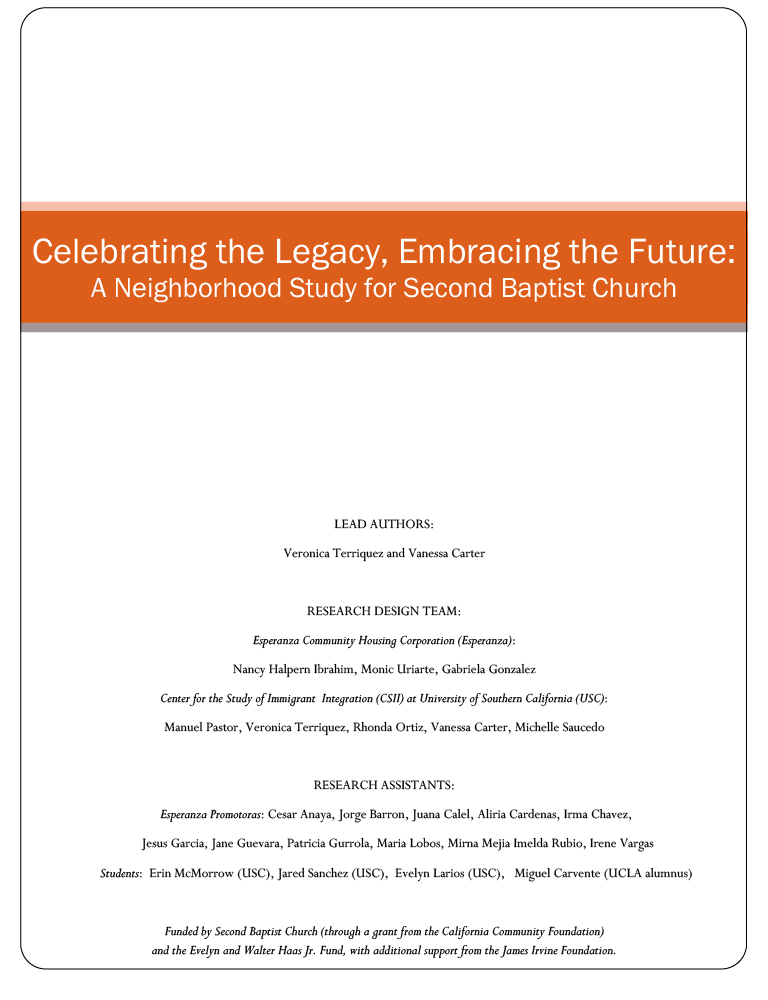
September 2010
By Veronica Terriquez and Vanessa Carter
Please note: reports dated earlier than June 2020 were published under our previous names: the USC Program for Environmental and Regional Equity (PERE) or the USC Center for the Study of Immigrant Integration (CSII).
Founded in 1885, the Second Baptist Church has been a pioneer in the struggle for civil rights in Los Angeles. Home congregation to pioneering activist Charlotta Bass, during the civil rights movement, the Church co-hosted two NAACP national conventions and Martin Luther King, Jr. regularly preached from its pulpit.
In the last several decades, the neighborhood around the church has changed dramatically. The new residents, largely immigrant Latinos, often struggle with issues of both working poverty and achieving a voice in civic affairs—exactly the challenges that faced an earlier generation of African American migrants who came from the South to Los Angeles to find new opportunities.
While the combination of rapid demographic change and ongoing economic stress has sometimes provoked conflicts around economic, political and cultural issues, it has also triggered a series of community-based efforts to build new relationships and work together for a more sustainable and inclusive Los Angeles. Commissioned by Second Baptist, funded in part by the California Community Foundation, the Evelyn and Walter Haas Jr. Fund, and the James Irvine Foundation, and conducted by USC’s Center for the Study of Immigrant Integration and Esperanza Community Housing Corporation, this report was another step in this process of relationship-building.



